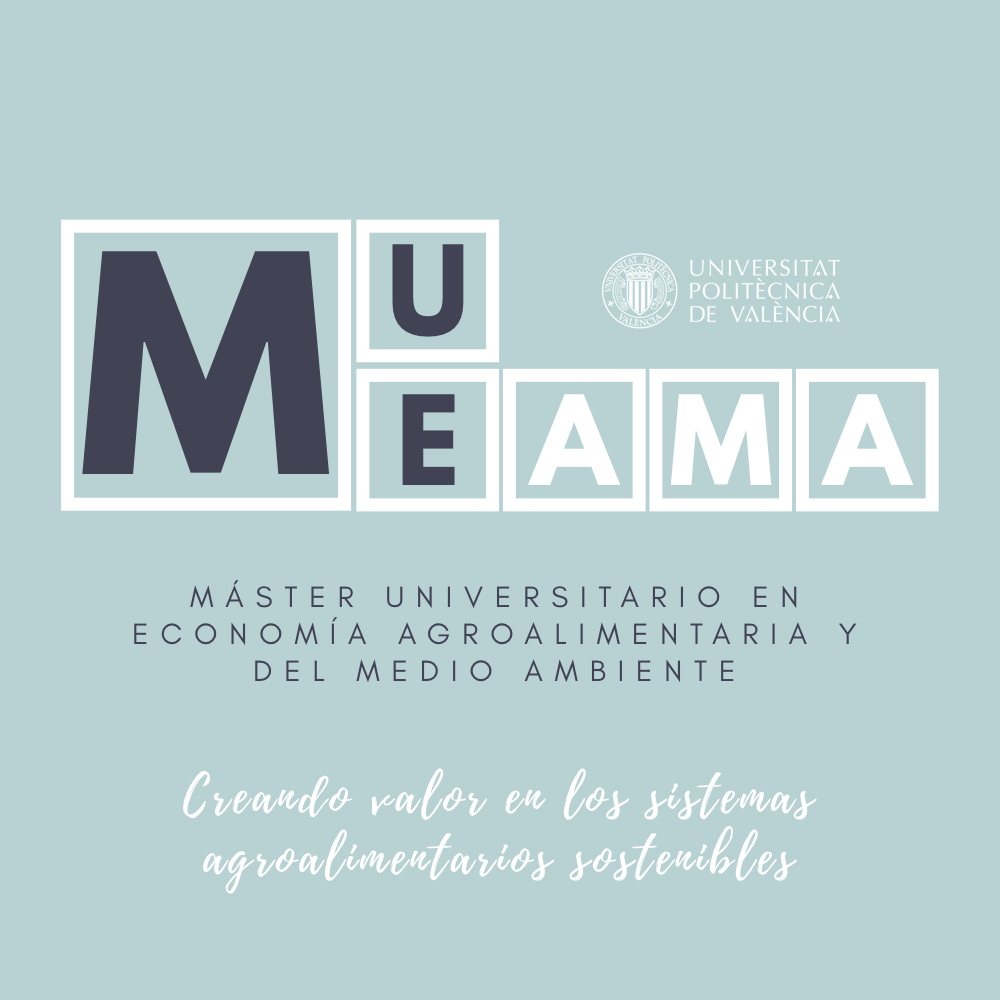 Vera (València) Campus, Universitat Politècnica de València
Vera (València) Campus, Universitat Politècnica de València
Master's Degree in Agrifood and Environmental Economy
60 credits
Credit 35,34 €
(2024/2025)
25 openings
(2024/2025)
Climate change and the management of natural resources, in particular water, particularly affect the agricultural sector, posing a challenge for its sustainable management. With globalisation, companies must make a major effort in terms of efficiency, differentiation and innovation in order to be competitive. This means adapting their structures, improving their position in the value chain and adopting modern management, distribution and marketing techniques. Internationally, foreign trade and foreign direct investment offer opportunities for growth. For developing countries, it is necessary to consider the role of cooperation and agricultural and food safety policies.
The analysis and research techniques of economics and social sciences provide tools to make it easier for the agrifood sector and the environment to fulfil their private and social functions.
Curriculum
The Master has a duration of one course (60ECTS) divided into two semesters. From September to January (A), and from February to May (B). In addition, there are professional internship (approximately 6 weeks, part-time) and the master's thesis (TFM).
In the first semester, the student will receive all the necessary knowledge so that in semester B they can apply it and develop, under teaching supervision, professional projects related to the two main areas on which the master's degree focuses: Agri-Food Business Management and Agri-Food Economics and Policy and enviroment.
In-person mode
The activities take place at the UPV's Vera (València) campus: classes and seminars, personalised tutorials, study and planning activities, and the completion of the master's thesis. In addition, you can take advantage of the wide range of complementary activities on campus.
Objectives
One of the objectives of this master's degree is to train specialists in agrifood and environmental economics. To this end, students will be provided with the necessary knowledge in business management, marketing, the structure of the agrifood sector, agricultural and environmental policies, etc. This knowledge will enable students to acquire the necessary skills to carry out professional work in the field of consultancy, business management and public management.
In addition, the master's degree aims to train future researchers so that its graduates can go on to doctoral studies.
Aimed at
- The Master’s Degree is aimed at students with university degrees in the fields of engineering, economics and business and other social sciences.
- It is also aimed at graduates of Environmental Sciences or with equivalent foreign qualifications.
Admission criteria
The procedure for admission and the selection of candidates will be based on the academic record, professional experience and teaching or research accomplishments.
Organisation
Department of Economics and Social Sciences
Sponsorship
The Master’s Degree has the financial support and collaboration of the Consum and Tierra Ciudadana chairs.










